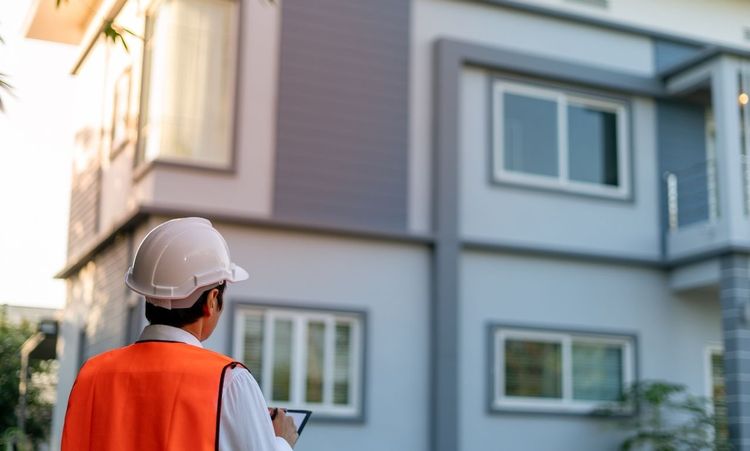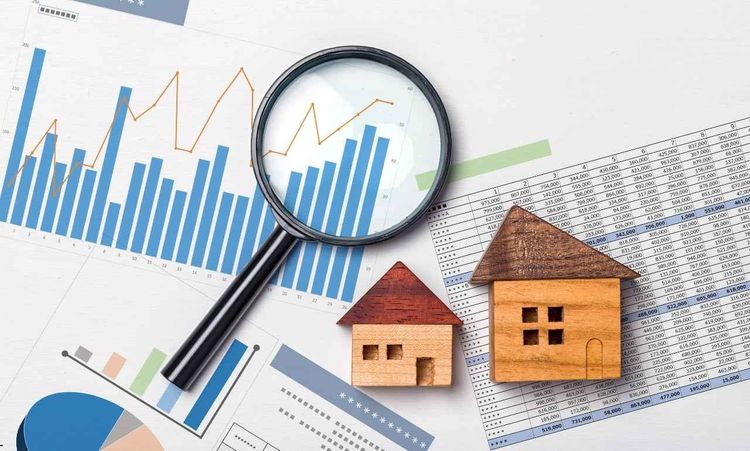Buying a home is exciting, but also a little stressful. One crucial step before closing is the home inspection. Many buyers ask: How much does a home inspection cost? It's a smart question. Costs can vary widely depending on several important factors. Inspections help you avoid costly surprises. They offer peace of mind before signing that dotted line. If you're wondering whether the inspection is worth it, the answer is almost always yes.
What Is a Home Inspection?
A home inspection is a detailed evaluation of a property's condition. It’s usually ordered by the buyer. A certified home inspector examines major systems and components of the home.
The inspector looks at the roof, plumbing, foundation, HVAC system, and electrical wiring. The goal is to identify current issues and potential future problems. Once the inspection is complete, you'll receive a detailed inspection report.
This report outlines everything the inspector found. It helps buyers decide if they want to move forward, ask for repairs, or negotiate the price. The inspection also helps avoid surprises after you move in.
Benefits of a Home Inspection
A home inspection offers several clear advantages. First, it helps you make a well-informed decision. You’re not just buying a house—you’re buying everything inside and underneath it.
Second, it can protect your wallet. Knowing what’s wrong before you buy can save you thousands. You may discover issues with the roof, plumbing, or HVAC system.
Third, the report gives you leverage. You can request repairs or price reductions based on the inspector’s findings. That’s especially important in competitive housing markets.
Finally, a good inspection gives you peace of mind. You’ll sleep better knowing there are no major hidden problems waiting for you.
What Happens During a Home Inspection?
The inspector starts outside, evaluating the roof, siding, foundation, and drainage. They’ll check gutters, grading, driveways, and exterior structures like decks.
Inside, they inspect the walls, ceilings, floors, doors, and windows. Major systems like plumbing, heating, cooling, and electrical are tested for function and safety.
Appliances like the oven and dishwasher are usually checked, too. The attic and basement also get a close look for insulation, moisture, or structural issues.
After everything is examined, the inspector writes a comprehensive report. It includes photos, comments, and recommendations. Some inspectors deliver the report the same day. Others may take 24–48 hours.
Home Inspection Cost Factors
Now let’s answer the question: How much does a home inspection cost? Several factors play into the final price. Understanding these helps you set the right expectations.
Home Inspection Cost by Location
Where you live makes a big difference. Urban areas usually cost more than rural ones. That’s due to higher living costs, licensing rules, and demand.
For example, in New York City, inspections can range from $500 to $800. In smaller towns, you might pay closer to $250 to $400. Coastal and high-risk regions like California or Florida may have added fees for seismic or storm-related risks.
Home Inspection Cost by Size
Larger homes take longer to inspect. More square footage means more systems, more rooms, and more time. That increases the price.
A 1,000-square-foot home may cost $250. A 3,000-square-foot home could cost $500 or more. Some inspectors charge based on square footage. Others offer tiered packages for different home sizes.
Home Inspection Cost by Type of Home
The type of home also matters. A condo may cost less to inspect than a single-family house. That’s because shared systems like roofing or exterior maintenance are handled by the HOA.
Townhouses fall somewhere in between. Multi-family homes—like duplexes or triplexes—cost more due to the added number of units and systems to inspect.
Mobile homes and modular houses may have specialized pricing. They have different layouts and mechanical systems. Always ask what’s included in the quote.
Home Inspection Cost by Age of Home
Older homes typically cost more to inspect. There’s a higher chance of finding outdated wiring, plumbing, or structural concerns. Inspectors must spend more time checking for hidden problems.
An older home may also require special tools like thermal imaging or moisture meters. Those can add to the total price. Some inspectors add a flat fee for homes over a certain age, such as 30 or 50 years old.
Inspector Experience
More experienced inspectors may charge higher fees—but it’s often worth it. A seasoned professional knows what to look for. They’re more likely to catch small issues before they become big problems.
Ask if they’re certified by reputable organizations like the American Society of Home Inspectors (ASHI) or InterNACHI. These groups require rigorous training and ongoing education.
An experienced inspector might also offer valuable advice during the walkthrough. They can explain what’s urgent, what’s cosmetic, and what’s typical for homes in your area.
Cost of Specialized Home Inspections
Sometimes a general inspection isn’t enough. Specialized inspections dig deeper into specific concerns. These cost extra but can be critical depending on the situation.
Termite and Pest Inspections
If you live in a region prone to termites or pests, you may need this added inspection. It checks for infestations and structural damage. Expect to pay $75 to $150.
Sewer Scope Inspections
Inspectors use a small camera to look inside your sewer line. This helps detect clogs, roots, or breaks. These typically cost $150 to $300.
Mold Inspections
Mold tests include visual checks and air samples. If the home smells musty or has visible growth, get one. Mold testing costs $200 to $600.
Radon Testing
Radon is a radioactive gas that can seep into basements. It’s a serious health risk. Radon tests usually cost $100 to $250 and take a few days.
Septic Tank Inspections
If the home has a septic system, this is crucial. Septic inspections ensure it’s working properly. Costs range from $200 to $500 depending on access and location.
EIFS Inspections
Homes with Exterior Insulation and Finish Systems (EIFS) require a moisture probe test. These specialized inspections often cost between $300 and $600.
Thermal Imaging
Thermal cameras help inspectors find temperature differences. This reveals missing insulation, roof leaks, or moisture issues. Thermal imaging may add $100 to $400.
Personal Experience
When I bought my first home, the inspector found a hidden roof leak. I didn’t see any water damage myself. But his thermal imaging tool showed moisture under the attic insulation. That $400 inspection saved me from a $10,000 repair.
Conclusion
So, how much does a home inspection cost? It depends on many factors. Your location, home size, age, and inspection type all influence the price.
Basic inspections usually cost between $300 and $500. Extras like mold, radon, or sewer scopes add to the total. Still, a thorough inspection is one of the smartest investments you’ll make during the homebuying process.
Don’t skip it. It’s your safety net. It protects your budget, your family, and your peace of mind. Always hire a certified, reputable home inspector. And ask questions—lots of them.



